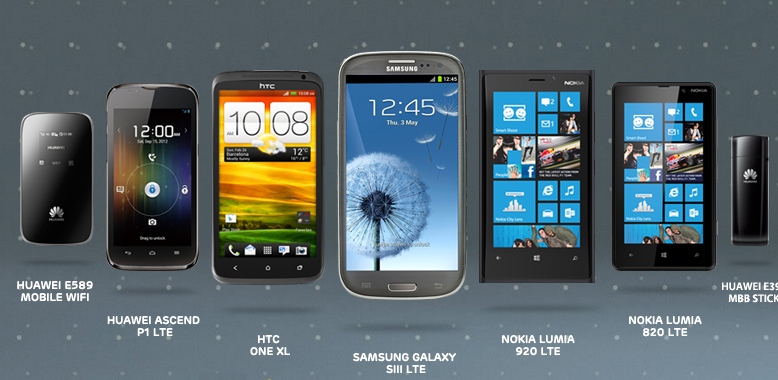While other networks will be carrying Windows Phone 8 handsets, Nokia's flagship handset would be expected to lead the charge in the UK. Although we still have to see the subsidised cost of the handset, the prices for data per month are drawing a lot of discussion online.
The monthly costs for individual users are:
500MB for £36, 1GB for £41, 3GB for £46, 5GB for £51, and 8GB for £56.
When you go through these limits, EE suggest you can either stop using data until your next billing period(!), or you can buy a further data add-on. It's not clear if these add-ons are the same cost as the monthly data packages. For comparison, that's roughly £5 a month more than the 3G packages currently available on Orange and T-Mobile. In terms of data, the upgrade to 4G seems to have a consistent cost, but 4G is as much about the speed of the data than it is about just the data. If your smartphone opened up the taps and pulled down a continuous stream of data at the best possible speed, 500MB could be used up in around ten minutes.

I'm more interested in what effect this will have on Nokia's Lumia 920 handset. Stephen Elop has made the decision that 'exclusive' arrangements are the way to go with the marketing of Nokia's top-line Windows Phone 8 handset - AT&T in the US, Rogers in Canada, and EE in the UK - this limits the general availability of the handset to the public, but should offer greater benefits to the manufacturer and the network. I wrote about this in more detail earlier in the October, but the bottom line is that Nokia believe they can sell more Lumia 920's through exclusivity than general availability.
That's a bit of a risk, especially if the two data points are the general release of the Lumia 800 (notably in the UK) this time last year, and the Lumia 900's launch on AT&T during Q2 this year. Those are two different markets, and while Nokia has a lot of experience in selling a lot of phones through the year, the mix of Windows Phone 8 and the launch of a new 4G network is a unique set of circumstances.
Everything Everywhere may be the company resulting from the merger of T-Mobile and Orange in the UK, but it is marketing itself as a brand new network. In a sense it is, with it being the first publicly available 4G network, and that means that consumers are looking at EE as an unknown.
So if you want to pick up a Lumia 920 in the UK, you are going to be taking a metaphorical risk on...
- The new Windows Phone 8 operating system.
- Nokia's new hardware.
- Signing up for 24 months on a brand new mobile phone network...
- ...and commit to paying more for data (albeit at a much higher speed).
I suspect that some early adopters will be happy with taking on board all four of these points, but that's a lot to ask of the general public especially in terms of the 4G data cost, arguably the unique selling point of the network. I can see why EE would want to get some exclusive handsets that people actually want, but I'm struggling to see how these factors can come together to make a Nokia exclusive deal with EE more attractive than placing the Lumia 920 with all the major UK networks.
It could be that the deal with EE is financially beneficial to Nokia in terms of the purchase price or guaranteed minimum levels, but is that the best approach for Nokia in the medium to long-term? They need to establish themselves as a leading smartphone manufacturer once more, one which can build desirable handsets that have popular support.
By going with EE, Nokia are limiting their potential audience in the UK, they are limiting the impact that the Lumia 920 could have on the market, and they are limiting the success that Windows Phone 8 can have in one of the most important markets outside of America.
